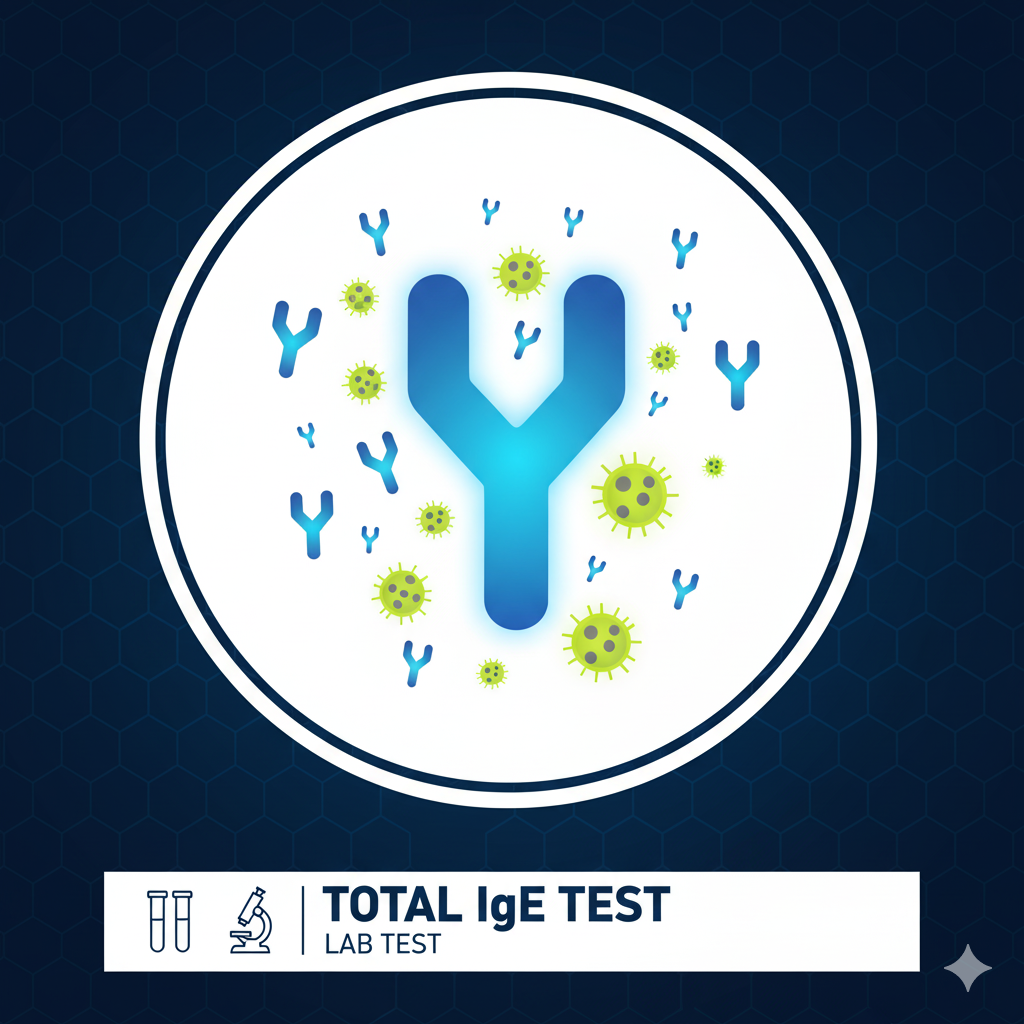
Total IgE Test
screening for allergy
₹700.00
The Total IgE test measures the overall quantity of all IgE antibodies in your blood.
Purpose: To screen for potential allergies, parasitic infections, or certain immune disorders, as these conditions can cause an overall elevation in IgE levels.
Interpretation: A high Total IgE level suggests the patient may have an allergy or other condition associated with elevated IgE, but it does not identify the specific allergen or the severity of the allergy. A normal level, however, does not definitively rule out an allergy.